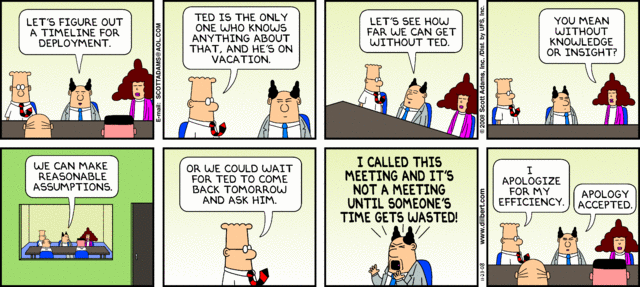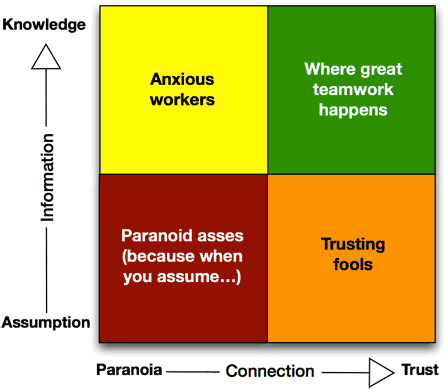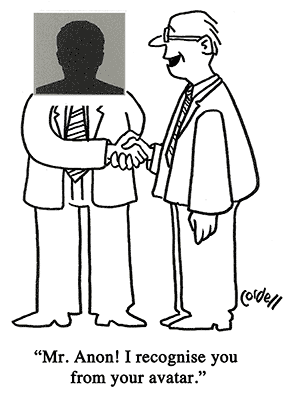The Key to Success in Business: Effective Meeting Facilitation
We all know time can be wasted in meetings, but do we really need to bash them as toxic, soul-sucking, productivity killers?
It’s not the meetings themselves that are at fault here – it’s the facilitators.
Yes, the people who are scheduling and running them are wasting your time – in my opinion they’re the ones who come between you and your productivity.

Photo Credit: Dilbert.com
A good facilitator can bring a team together and move work forward. A great facilitator can help a team flourish, deliver successful outcomes and make it feel as though you’re not working.
Effective meeting facilitation requires way more than just showing up – you have to truly want to guide a team toward great results. It’s not the easiest job and it takes some effort, yet done well, it can be very rewarding.
I’ve come up with an easy way to remember how to facilitate well – the 5 P’s of great facilitators:
Purpose, Participants, Preparation, Presence and Punctuality
Purpose
Effective meetings start with a purpose. If you don’t have a reason to have it, then by all means go get something else done! Life is short – make them matter or don’t have them at all.
Once you have a purpose, make sure the meeting stays focused on that purpose.
Participants
There are two things to consider when inviting attendees – who you will invite and how you plan to keep them engaged.
When considering who should attend, ask yourself, is their input needed? What happens if they don’t show up? Can you make decisions without them? If there are team members who must help make an important decision, then make sure they’re able to attend.
Engagement is critical to keeping everyone on track and moving work forward. If you want to make sure everyone is focused, you may have to implement some facilitation techniques.
Make sure everyone feels included by asking each person to contribute at different times. Remember, your job is to guide and control – not necessarily to add your input into every conversation. Keeping a neutral stance can help the others work through decisions and reach the best outcomes.
Preparation
Not preparing for a meeting is about the worst thing you can do as a facilitator. Really, this is non-negotiable. Take the time to pull together an agenda (even if very basic), think through what decisions need to be made, and coordinate schedules. You will be happy you did, because you can start faster, progress more smoothly, and maybe even finish early.
Presence
When you have a commanding presence, people pay attention. Things get done. Work moves forward. However, if situations get a little out of hand, make sure you’re comfortable taking control and keeping things moving along.
In addition to being in control, being present and paying attention to what’s happening is crucial. Being an organizer doesn’t mean you can coordinate and then sit back and relax – you are an active participant at all times.
To keep your focus on facilitating, ask someone else ahead of time to take notes and capture important decisions. Let them know why it’s important and how to do it well. Your team will not remember everything that transpired, and they will look to you to send them this information as soon as possible.
Punctuality
Always arrive before your participants and make sure everything is prepared. Even if you arrive early and make small talk, pay attention to the clock and begin as close to the start time as possible. If you start late on a regular basis, attendees will inevitably start showing up late.
In addition, watch the clock for every agenda item, and move on if your team is not getting to resolution. You can always table a conversation for a smaller group or the next meeting.
If you can’t end early, then at least end on time. Your colleagues and customers will thank you for it, and they can move on to other commitments.
Final thoughts
Why facilitate better? Because:
- Running an effective meeting leads to better outcomes.
- Better outcomes leads to saved time, saved money, and more productivity.
- All of this leads to more successful companies, better paychecks, happy bosses, more time with the family, and more fun vacations.
Ok, so the last one may be a bit over the top, but a little effort towards facilitating well really can go a long way.



